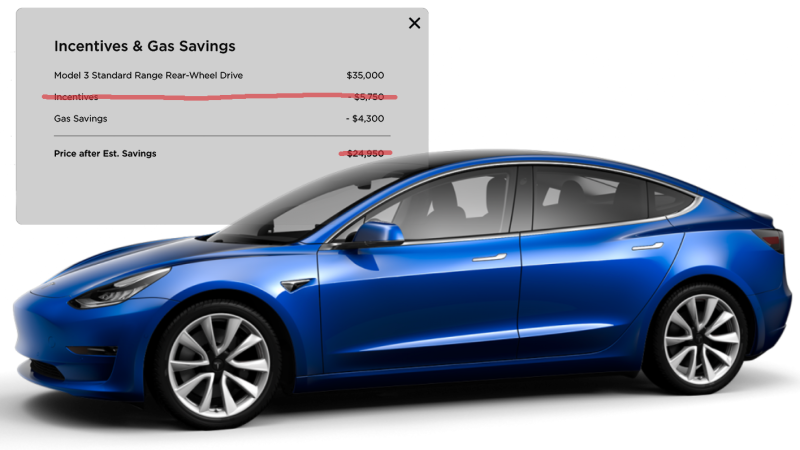
President Trump, who’s been threatening to end the federal electric vehicle tax credits for awhile now, committed to eliminating the credit in his proposed budget announced today. The budget is not expected to be approved by congress.
Obviously, automakers want the federal government to keep the EV tax credit around, as it means they get away with selling their cars at a higher price point to help cover development costs of hybrid and electric models with expensive new technology. Here’s more on the situation, via Reuters:
The credit enjoys strong support among Democrats in Congress, but Senator John Barrasso, a Republican who chairs the Senate Environment and Public Works Committee, has proposed legislation to end it entirely.
[…]
Trump’s $4.7 trillion budget, which seeks to slash funding for foreign aid and the State Department and increase spending for the military and a border wall, is expected to be rejected by Congress.
The current federal tax credit for hybrid and electric vehicles offers up to a $7,500reduction in the income tax you owe, based on the battery capacity of the vehiclepurchased, which you can apply for when you’ve bought the car.
Some 57,066 individuals redeemed $375 million in tax credits in 2016, according to a study done by the Congressional Research Service in November of last year, and study also anticipates the cost of the credit going forward between 2018 to 2022 to be $7.5 billion. That would account for credits on 250,000 vehicles getting the full credit each year, or even more if you factor in cars that aren’t getting the full credit as well.
Currently, the $7,500 credit is redeemable for the first 200,000 electric vehicles produced by an automaker, including sales through the quarter in which they reach that benchmark, as well as for every vehicle sold in the following quarter. The credit then drops to $3,750 for the following six months, and then down to $1,875 for the subsequent six months.
Advertisement
So far, General Motors and Tesla are the only two automakers that have surpassed the initial 200,000 benchmark. Meanwhile, major automakers in the U.S. like Ford, Toyota, Honda, Nissan, FCA, Subaru, and Volkswagen all have a significant portion of their initial 200,000 credits left for consumers to redeem, most of which are well on their way to bringing new hybrid and electric models to market in the next five years.
We’ll see if automaker lobbying and Democrat support for the incentives will keep them alive as the budget is negotiated over the coming weeks.













